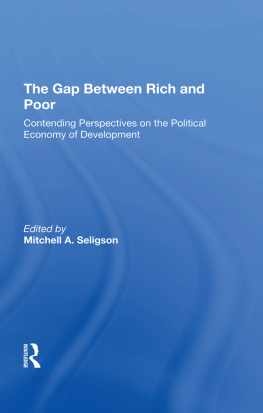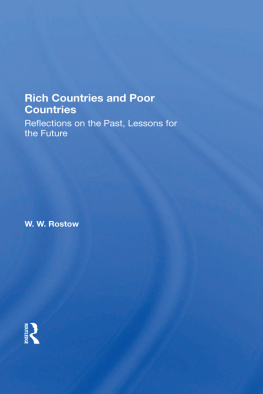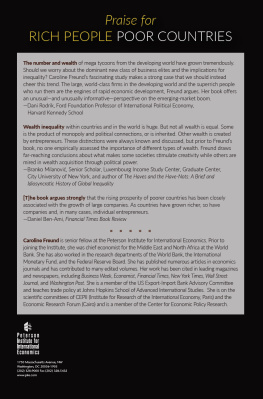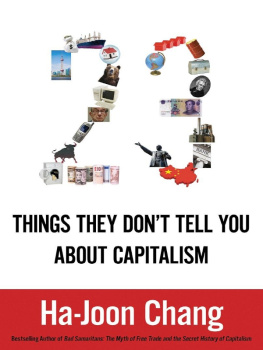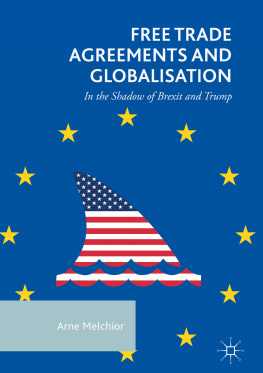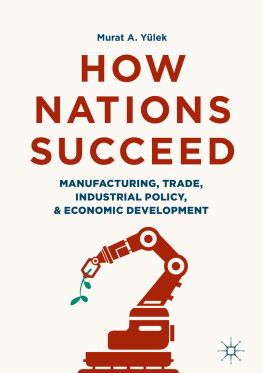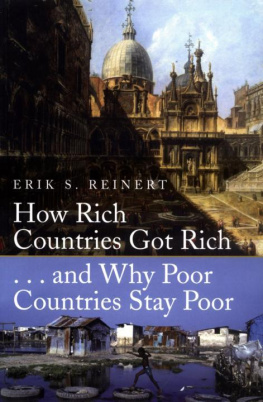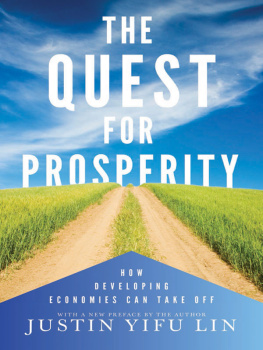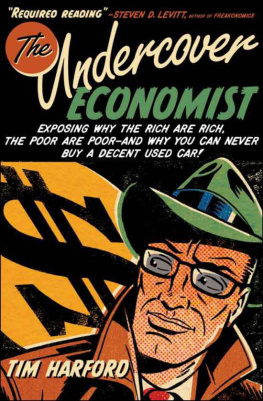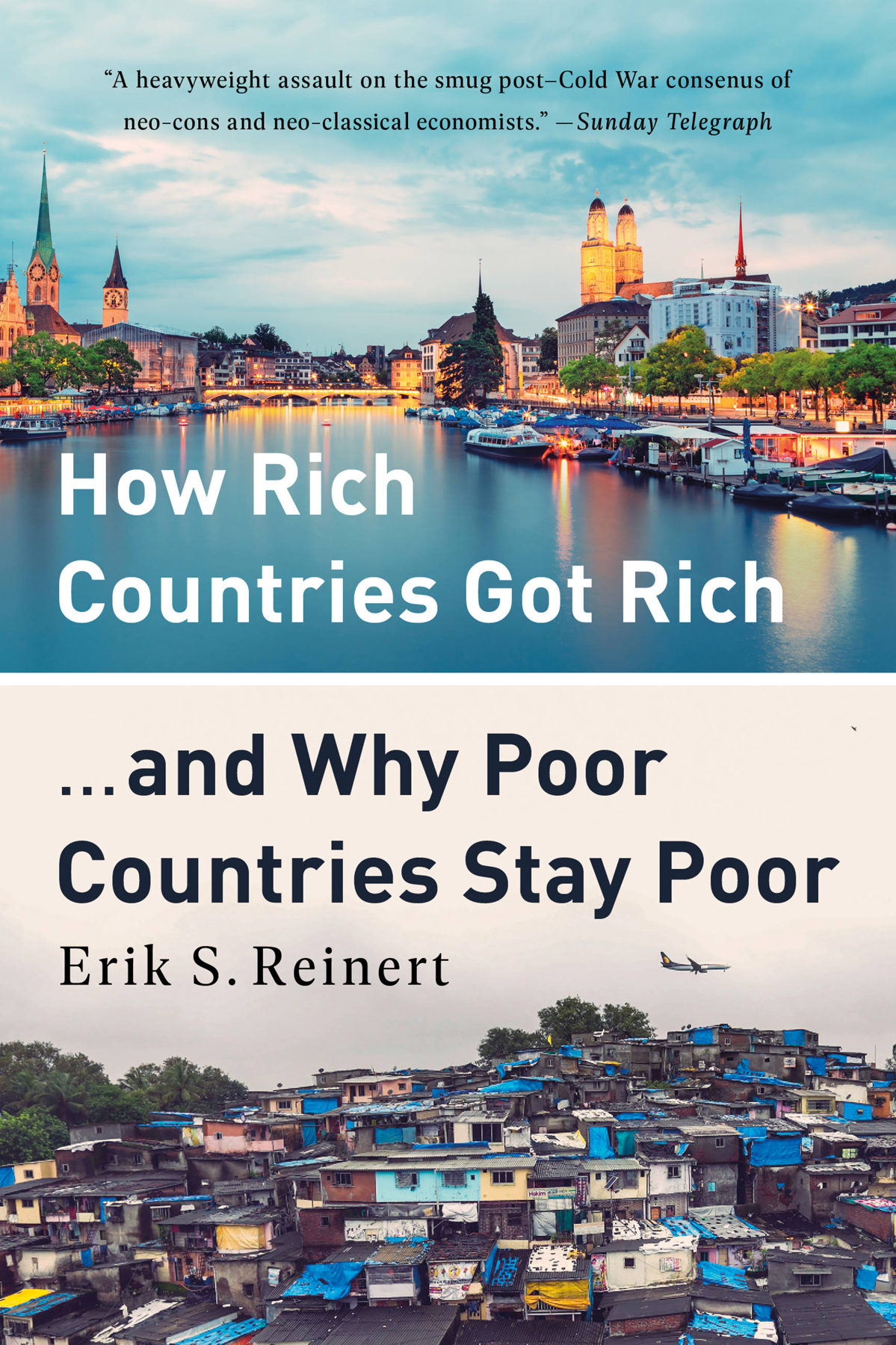Copyright 2007, 2019 by Erik S. Reinert
Cover design by Pete Garceau
Cover images iStock / Getty Images
Cover copyright 2019 Hachette Book Group, Inc.
Hachette Book Group supports the right to free expression and the value of copyright. The purpose of copyright is to encourage writers and artists to produce the creative works that enrich our culture.
The scanning, uploading, and distribution of this book without permission is a theft of the authors intellectual property. If you would like permission to use material from the book (other than for review purposes), please contact permissions@hbgusa.com . Thank you for your support of the authors rights.
PublicAffairs
Hachette Book Group
1290 Avenue of the Americas, New York, NY 10104
www.publicaffairsbooks.com
@Public_Affairs
Originally published in 2007 by Constable, an imprint of Constable & Robinson Ltd, in the UK
First US Edition: August 2007
First Trade Paperback Edition: October 2008
Published by PublicAffairs, an imprint of Perseus Books, LLC, a subsidiary of Hachette Book Group, Inc. The PublicAffairs name and logo is a trademark of the Hachette Book Group.
The Hachette Speakers Bureau provides a wide range of authors for speaking events. To find out more, go to www.hachettespeakersbureau.com or call (866) 376-6591.
The publisher is not responsible for websites (or their content) that are not owned by the publisher.
A copy of the British Library Cataloguing in Publication Data is available from the British Library.
ISBNs: 978-1-5417-6289-3 (paperback), 978-1-5417-6288-6 (ebook)
E3-20190828-JV-NF-ORI
Discover Your Next Great Read
Get sneak peeks, book recommendations, and news about your favorite authors.
Tap here to learn more.

Explore book giveaways, sneak peeks, deals, and more.
Tap here to learn more.

Since anyone who criticizes the entire systems of others has a duty to replace them with an alternative of his own, containing principles that provide a more felicitous support for the totality of effects to be explained, we shall extend our meditation further in order to fulfil this duty.
Giambattista Vico, La Scienza Nuova, 1725
When demonstrators took to the streets of Seattle in 1999, and on numerous occasions subsequently, in protest against the World Trade Organization and related international financial institutions, their protests were implicitly directed at conventional wisdom the economic orthodoxy which has legitimized and provided the analytical scaffolding for much of their policy conditionalities and advice. At the risk of caricature, over the last two decades this theory has claimed that self-regulating markets would produce growth for all, if only the role of government was kept to the bare minimum of the night watchman.
This orthodoxy had gained popularity with the advent of stagflation in the 1970s and the intellectual assault on Keynesian and development economics. The fiscal crises of welfare states from the 1970s and the later demise of centrally planned economies provided additional succour for the new orthodoxy, despite the evident failure of monetarist experiments in the early 1980s. Today, only fundamentalists at the extremes argue for either a completely self-regulating economy on the one hand or for a totally state-run economy on the other.
This book by Erik Reinert identifies the key economic and technological forces which need to be harnessed by economic policy in order to generate economic development. His development analysis also recognizes that the development of underdevelopment is a result of the failure to promote and develop economic activities involving greater returns to scale and enhanced human capabilities, as well as productive capacities. Reinert creatively applies old economic lessons in new contexts.
How Rich Countries Got Rich argues that important economic lessons can be learned from setting the historical record straight. Reinert suggests that the history of the United States has the greatest economic relevance to todays poor countries. Seventeen seventy-six was not only the year of the first publication of Adam Smiths Wealth of Nations, but also saw the beginning of the first modern war of national liberation against British imperialism. The Boston Tea Party was after all a mercantilist action. The economic theorist of the American Revolution was none other than its first Secretary of the Treasury, Alexander Hamilton now recognized as the pioneer of what is often termed industrial policy.
Consider what the US economy would look like today if the Southern Confederacy had triumphed over the Northern Unionists the last third of the nineteenth century would not have seen the US economy rapidly industrialize. As the curators of the Smithsonian Museum of American History note, the huge technological gap, recognized by American participants at the Great Exhibition at Crystal Palace in 1851, would not have been bridged, and the US might not have become the worlds leading economy so early in the twentieth century.
As Reinert shows us, after the Second World War the Morgenthau Plan sought to pastoralize Germany, then seen as the source of two world wars. Instead, General George Marshall contributed to the post-war Keynesian Golden Age with his plan to accelerate economic recovery and reindustrialization in Western Europe and Northeast Asia to ensure a cordon sanitaire of economic growth around the expanding Soviet bloc. The generous American contribution to post-war recovery stands in sharp contrast to its current aid contribution, not only quantitatively, but also in terms of financing government budgets and ensuring policy space.
Economic development involves profound qualitative change, not only of the economy, but also of society. Reducing economic development to little more than capital accumulation and more efficient resource allocation has become a formula for perpetuating economic backwardness in many poor countries. By deepening our understanding of uneven development by drawing from his rich knowledge of the history of economic policy, Reinerts book provides both important lessons and stimulating reading.
Jomo K. S., UN Assistant Secretary-General for Economic Development and Founder Chair, International Development Economic Associates (IDEAs)
Most ideas in this book are very old, and my biggest debt is to a large number of economic thinkers and policymakers who over the last 500 years successfully created wealth rather than reallocated it. I first came in contact with this distinguished group in 19746 when my wife worked as a librarian at the Kress Library at Harvard Business School. This library specialized in economic theory before 1850, thus maintaining an accessible gene-bank of their ideas. My economics professor at the Hochschule St Gallen, Switzerland, Walter Adolf Jhr (191087) retained some old continental European ideas, and at Kress I met Fritz Redlich (18921978), a surviving member of the German Historical School, who introduced me to Werner Sombart.
What is original in this book was embryonically there in my Ph.D. thesis written in 19789. Other than from the ancients, inspiration at the time came from Tom Davis, who taught economic history and development, and inspired the idea of differentiating economic activities, from Boston Consulting Group and their approach to measuring human learning and experience, and from Jaroslav Vanek, formerly of the Heckscher-Ohlin-Vanek theorem in international trade, who had come to understand how welfare-destroying international trade could be under given circumstances. His thorough deconstruction of conventional international trade theory confirmed why I had always found it counter-intuitive. Also at Cornell, John Murra opened my world to pre-capitalist societies. Classical development economics, with Myrdals cumulative causations, always formed a theoretical backdrop.


